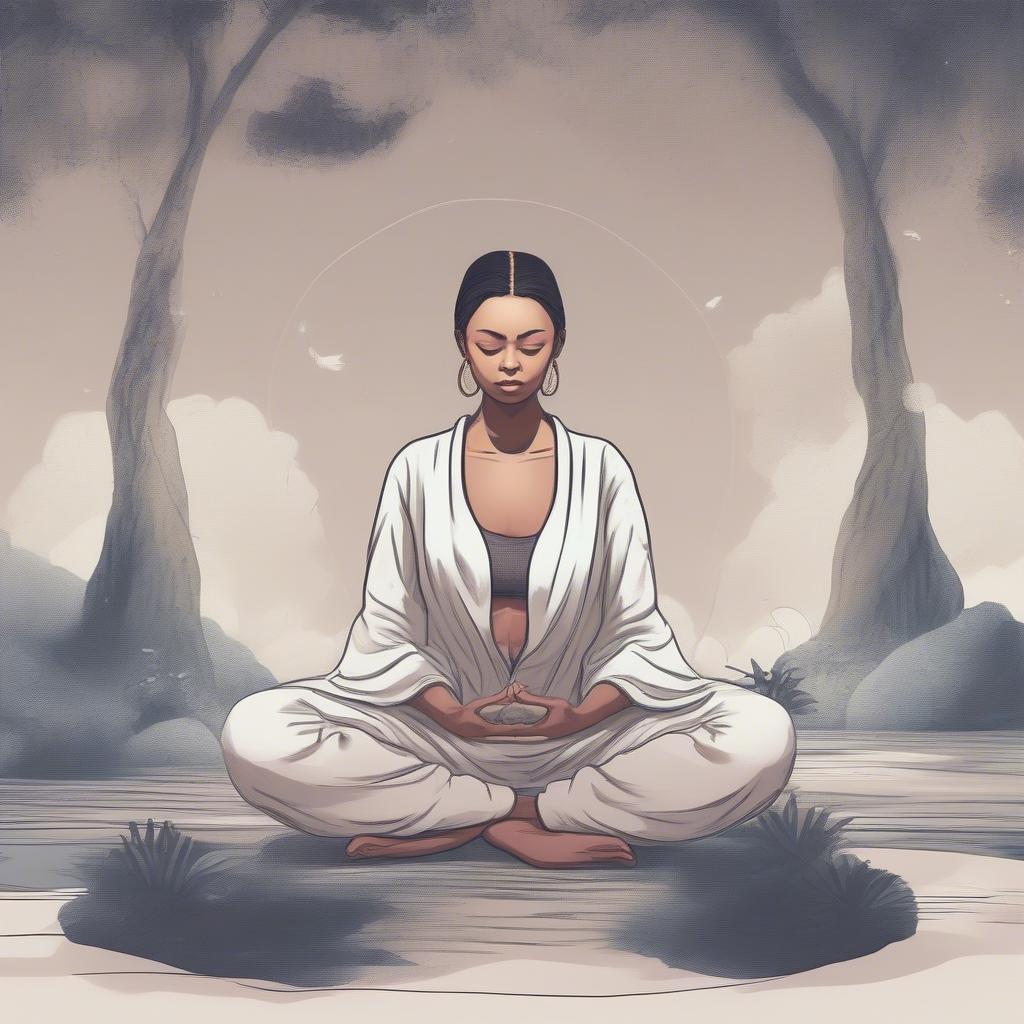Why can’t I be loved? This agonizing question echoes in the minds of many, leaving them feeling isolated and unworthy. Navigating the complex world of love and relationships can be challenging, and feelings of unlovability can be incredibly painful. This article explores the potential reasons behind these feelings and offers practical strategies for cultivating self-love and building healthy relationships.
Understanding the Root of the Problem: Why Do I Feel Unlovable?
Feeling unlovable isn’t about being inherently flawed; it’s often rooted in past experiences and negative self-perceptions. Childhood experiences, particularly those involving neglect or emotional unavailability, can significantly impact our sense of worthiness. Traumatic relationships, past rejections, and societal pressures can also contribute to these feelings. Understanding the underlying causes is the first step towards healing and finding love.
Past Experiences and Their Impact
Our early relationships, especially with caregivers, shape our attachment styles and beliefs about love. If these early relationships were characterized by instability or inconsistency, it can lead to a deep-seated fear of vulnerability and intimacy, making it difficult to form secure attachments later in life. Past romantic relationships marked by betrayal or heartbreak can also reinforce feelings of unlovability, creating a cycle of self-doubt and fear of future rejection.
 Past Experiences and Their Impact on Feeling Unlovable
Past Experiences and Their Impact on Feeling Unlovable
The Role of Negative Self-Talk
The way we talk to ourselves plays a crucial role in shaping our self-perception. Constant negative self-talk, focusing on perceived flaws and shortcomings, can reinforce feelings of unworthiness and create a self-fulfilling prophecy. This negative internal dialogue can sabotage our efforts to connect with others and build healthy relationships. It’s crucial to challenge these negative thoughts and cultivate a more compassionate and accepting inner voice.
Societal Pressures and Unrealistic Expectations
Societal pressures and unrealistic portrayals of love in media can also contribute to feelings of inadequacy. The constant bombardment of idealized images and “perfect” relationships can make us feel like we don’t measure up, leading to self-doubt and feelings of unlovability. It’s important to remember that these portrayals are often unrealistic and to focus on building genuine connections based on authenticity and vulnerability.
Cultivating Self-Love: The Key to Finding Love
Learning to love yourself is essential for attracting and maintaining healthy relationships. When you value and appreciate yourself, you attract others who see your worth. Self-love is not about narcissism; it’s about recognizing your inherent value and treating yourself with kindness and compassion. This involves challenging negative self-talk, setting healthy boundaries, and prioritizing your own well-being.
 Cultivating Self-Love: The Key to Finding Love
Cultivating Self-Love: The Key to Finding Love
Embracing Your Strengths and Imperfections
Everyone has strengths and weaknesses. Focusing on your positive qualities and accepting your imperfections is crucial for building self-esteem. Recognize your accomplishments, celebrate your unique talents, and acknowledge your worth as an individual.
“Embracing vulnerability is the cornerstone of authentic connection,” says Dr. Emily Carter, a renowned relationship therapist. “It’s in our imperfections that we find our true strength and connect with others on a deeper level.”
Setting Healthy Boundaries and Prioritizing Your Needs
Setting healthy boundaries is about respecting yourself and your needs. This involves saying no to things that drain your energy or compromise your values, and prioritizing activities that bring you joy and fulfillment. When you prioritize your well-being, you send a message to yourself and others that you are worthy of love and respect. Check out can’t buy love cast for more insight into the dynamics of love and relationships.
Practicing Self-Care and Compassion
Self-care is not selfish; it’s essential for maintaining emotional and mental well-being. Engage in activities that nourish your mind, body, and soul. This could include exercise, meditation, spending time in nature, pursuing hobbies, or simply taking time for yourself to relax and recharge. Cultivating self-compassion involves treating yourself with the same kindness and understanding that you would offer a friend. Remember the lyrics from can t help falling in love with you lyrics, a testament to the power of love and acceptance.
 Practicing Self-Care and Compassion
Practicing Self-Care and Compassion
Building Healthy Relationships: Opening Yourself to Love
Building healthy relationships requires vulnerability, trust, and open communication. It’s about creating a safe and supportive space where both partners feel seen, heard, and valued. This involves letting go of past hurts, challenging negative relationship patterns, and cultivating a mindset of love and acceptance. For those struggling with unrequited love, understanding who sings the song i can’t make you love me can offer solace and a sense of shared experience.
Letting Go of Past Hurts and Negative Relationship Patterns
Past relationship experiences can leave us with emotional baggage and negative beliefs about love. It’s essential to process these past hurts, learn from them, and let go of any resentment or bitterness. This involves challenging negative relationship patterns and creating new, healthier ways of relating to others.
“Letting go of past hurts is not about forgetting; it’s about releasing the emotional hold they have on you,” explains Dr. Michael Lee, a leading expert in relationship dynamics. “It’s about freeing yourself to create space for new, positive experiences.” Perhaps exploring the timeless love story in where do i begin love story lyrics can inspire hope and a renewed belief in the possibility of finding love. Also, the emotional depth expressed in can’t help falling in love diana ankudinova reminds us of the universality of the human experience of love and longing.
Cultivating a Mindset of Love and Acceptance
Cultivating a mindset of love and acceptance involves focusing on the positive qualities in yourself and others. It’s about approaching relationships with kindness, compassion, and a willingness to understand and forgive. This mindset creates a fertile ground for healthy, loving connections to flourish.
Conclusion: You Are Worthy of Love
Why can’t I be loved? The answer, quite simply, is that you can. You are inherently worthy of love and belonging. By cultivating self-love, addressing past hurts, and building healthy relationship patterns, you can open yourself to the love you deserve. Remember that the journey to finding love begins with loving yourself.
FAQ
- Why do I feel like I’m not good enough for love?
- How can I overcome past relationship trauma?
- What are some practical ways to practice self-care?
- How do I set healthy boundaries in relationships?
- What are the signs of a healthy relationship?
- How can I improve my self-esteem?
- Where can I find support for relationship issues?
Need additional support? Contact us at contact@daiduongtranhba.com or visit our office at Michigan Ave, Suite 3100, Chicago, IL 60611, USA. Our 24/7 customer service team is here to help.

